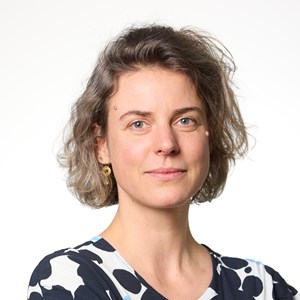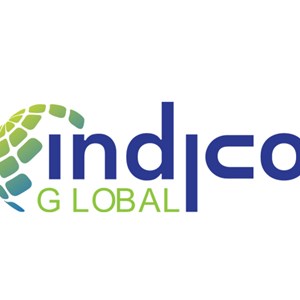The twin green and digital transitions open new opportunities for the European economy and for European citizens. But does Europe have what it takes? How can we make sure that it has the skills and the workforce to remain competitive in the global economy? And what is the role of standardization?
On the occasion of the European Year of Skills, we are launching a new special campaign: through a series of interview with standardization professionals, experts and business leaders coming from a variety of background, throughout the year we will explore the interaction between innovation, skills and standardization in some of the most relevant sectors for Europe’s long-term competitiveness.
In the first episode of the series, Alessio Tartaro, a young standardization professional from Italy, shares his perspective on Artificial Intelligence.
1. Please, present yourself. To what extent are you involved in standardization?
My name is Alessio Tartaro. I am 27 years old, and I come from Sicily, Italy. After completing my master's degree in philosophy from Scuola Normale Superiore and University of Pisa, I am now pursuing my PhD at the University of Sassari.
While some people may find philosophy a bit dry, I am passionate about exploring how the latest advancements in technology impact individuals and society. To that end, I am a proud member of UNINFO, the Italian standardization body for information technologies, and I collaborate in the standardization activities of CEN and CENELEC JTC 21 and ISO/IEC JTC1 SC42. These groups are spearheading the efforts in AI standardization, at the European and global level respectively. I actively participate in several working groups, mainly on subjects related to the ethical and societal impacts of Artificial Intelligence. I am committed to ensuring that AI development is guided by ethical values and societal principles that prioritize people's safety and well-being. After all, the purpose of technology is to improve the human experience, not detract from it.
2. How did you become involved in standardization?
I stumbled upon the world of standardization during my traineeship at the Joint Research Centre in Ispra, Italy. As part of my role, I was tasked with analysing standards on the ethical and social impacts of Artificial Intelligence. It was then that I discovered some standards, such as IEEE P7000 and ISO/IEC TR 24368, which intrigued me with their rich and insightful content. I was particularly impressed by their strong philosophical foundation in ethical theories, as well as their analysis of the ethical and societal impacts of Artificial Intelligence. They even provide actionable guidance for the development of new technologies in an ethical and sustainable manner. This is when I knew that I wanted to be a part of this movement.
Fortunately, the stars aligned when I learned of a PhD position on "The Ethics of Artificial Intelligence in European Standardization" at the University of Sassari, in collaboration with the company BeEthical. I applied for the position and was thrilled to be offered the opportunity to join the world of standardization. Thanks to this role, I have now the opportunity to contribute to the development of ethical and sustainable AI solutions and play my (very) small part in shaping the future of technology.
3. What added value for your present and future career working in standardization has provided you with?
Working in standardization has been an incredible opportunity for me to learn and grow both professionally and personally. Through my involvement in working groups, I have gained an unparalleled understanding of the state of the art in the field of AI from global experts. Every time an "expert contribution" is published on the CEN and CENELEC portal, I devour it with excitement, because I know I will learn something new.
Beyond technical knowledge, working in standardization has also honed my communication skills. Clear, concise, and direct communication is essential when working with experts from all over the world, and I have learned to communicate in a way that facilitates understanding and promotes collaboration.
Furthermore, as creating standards is a collaborative effort, involving dozens of experts, I have developed strong teamwork skills. This means the ability to navigate disagreements, negotiate positions, and ultimately reach consensus. It is a challenging but rewarding process, that has helped me grow as a professional.
But standardization isn't just about technical and soft skills. It is also about contributing to a larger mission: ensuring that new technologies are developed ethically and sustainably. I feel privileged to be part of a community that takes this responsibility seriously and is committed to making a positive impact on the world.
4. Can you help us understand why standardization is important for the AI sector?
Artificial Intelligence is changing the world as we know it, and its impact on society and the economy is only going to get bigger. To harness the power of AI and ensure it benefits everyone, standardization is critical. Standards help drive innovation, making it easier for businesses to bring sustainable AI solutions to the market. By establishing clear requirements for AI products and processes, they provide uniform terminology, ensure interoperability, and lay the foundation for technical procurement, product development, and optimal communication among all parties involved. In doing this, they build trust in technology applications, encourage social acceptance, and facilitate the uptake of AI.
However, AI innovation also comes with risks, particularly around health, safety, and fundamental rights. That is why the European institutions are taking a pioneering approach to AI regulation, with the development of the AI Act to regulate high-risk AI systems. European standards will play a crucial role in the implementation of the regulation, providing technical specifications to operationalize the requirements of the AI Act. By doing so, these standards will help make AI systems in Europe safe and trustworthy, protecting people and encouraging responsible innovation.
5. 2023 is the European year of skills. In your experience, what are the most important skills for a successful standardization professional?
As a standardization professional, one must possess a unique combination of knowledge, skills, and personal qualities to be successful. A strong knowledge base is crucial, as one must be well-versed in the field they are working in to ensure that the standards they develop or apply are up-to-date and meet the needs of stakeholders.
Secondly, one must have a comprehensive set of skills that can be applied throughout the entire life cycle of a standard, from development to implementation and revision. A standardization professional must be able to identify emerging areas that require standardization, develop new standards in accordance with internal procedures, and understand when existing standards require revision.
Moreover, being a standardization professional demands a particular set of personal qualities. The environment in which standards are developed is collaborative and requires individuals who are precise, respectful, patient, and responsible. Collaboration is essential, as standardization is a process that involves the input and feedback of many experts from various backgrounds. To be effective, standardization professionals must be able to work well with others and be committed to the overall success of the standardization process.
Achieving this blend of knowledge, skills, and personal qualities is not easy, but it is possible with commitment and determination. National and international standards development organizations offer a wealth of learning materials that can help individuals become more familiar with the world of standardization. However, the ultimate determining factor is gaining hands-on experience. Attending meetings, exchanging information and knowledge, and writing draft documents to discuss with others expert are all essential in developing the skills needed to be a standardization professional.
6. Does Europe (and European standardization) have all it takes to meet the challenges of the AI revolution?
The AI revolution is a transformative force that brings both opportunities and challenges. It is not an easy task to govern such a complex and uncertain process, but Europe is taking a balanced approach. The EU's risk-based approach strikes a balance between the need for innovation and the need to protect the safety and fundamental rights of people. While the US and China are leading the way in AI innovation, Europe is developing its own approach to embracing AI opportunities while keeping it human-centric, ethical, secure and aligned with our values. Rather than focusing on winning a race, Europe can define the racetrack on which this race should be run. The EU has strong legal frameworks that can help achieve this goal, and the standardization community is working closely with policymakers to ensure that European standards for AI are aligned with our shared values.
7. What can CEN and CENELEC do to improve the participation of young and, more generally, new people in standardization?
ESOs have an important role to play in promoting greater inclusivity and accessibility in standardization, particularly regarding the participation of young and new people. There is an ongoing discussion in CEN/CENELEC JTC 21 on how to facilitate the participation of as many stakeholders as possible, from SMEs, civil society, academia. Inclusiveness and accessibility are also key themes in the European Commission's Standardization Strategy, which recognizes the importance of involving diverse stakeholders in the standardization process to ensure that it is truly representative of society as a whole, and that the resulting standards are effective, relevant, and useful to all.
I believe that fostering the participation of demographically diverse experts, in terms of gender, age, geographical origin, and various disciplinary backgrounds, is key to address challenges that are not only technical, but also social and cultural. To achieve this goal, we need to improve the governance within the European standardization system, but this is not sufficient. We also need to raise awareness and actively engage with underrepresented groups to encourage their participation, for example through targeted outreach, mentoring programs, and other initiatives to promote greater diversity and inclusion in standardization.

Giovanni COLLOT
gcollot@cencenelec.eu



